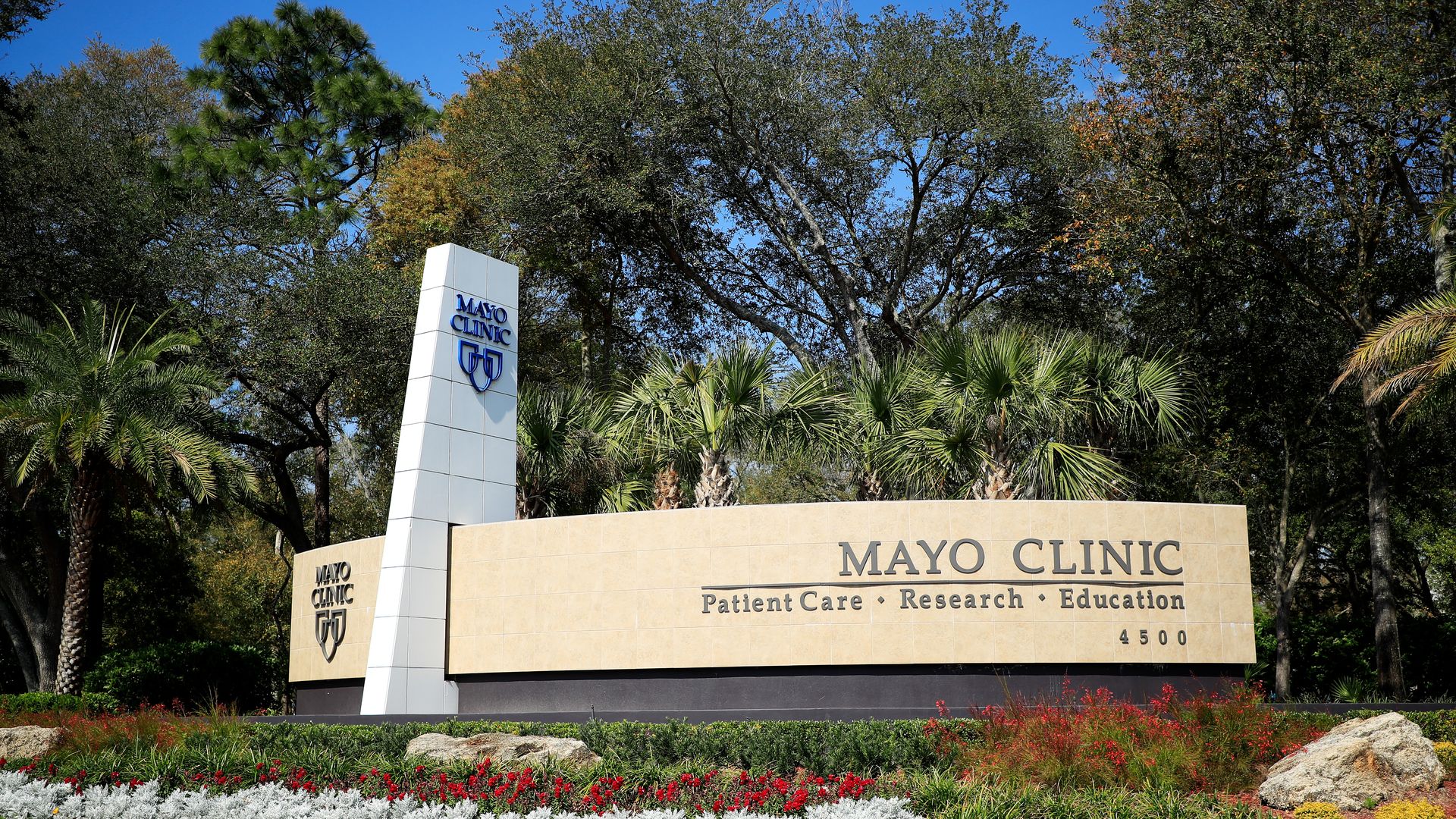Apr 27, 2020 - Health
The hospitals that have disclosed bailout funds so far
Add Axios as your preferred source to
see more of our stories on Google.

Mayo Clinic has received $220 million in CARES Act funding as of May 15. Photo: Cliff Hawkins/Getty Images
